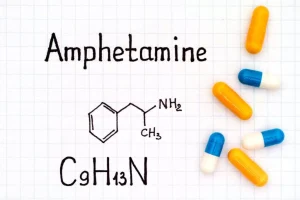
You may be suffering from alcohol misuse if you drink too much alcohol at one time or too often throughout the week. It can cause you to be unable to function at work and in other areas of your life. Many people with alcohol use disorder hesitate to get treatment because they don’t recognize that they have a problem. An intervention from loved ones can help some people recognize and accept that they need professional help. If you’re concerned about someone who drinks too much, ask a professional experienced in alcohol treatment for advice on how to approach that person.

What other factors increase the risk of addiction?

Your liver, which filters alcohol out of your body, will be unable to remove all of the alcohol overnight, so it’s likely you’ll wake with a hangover. Dependent drinkers with a higher tolerance to alcohol can often drink much more long term alcohol misuse may cause without experiencing any noticeable effects. The National Council on Alcoholism and Drug Dependence and AlcoholScreening.org offer more comprehensive self-tests. The following are some questions people frequently ask about alcohol use and its effects.
Understanding Alcohol Use Disorder
Heavy drinking can also increase your blood pressure and blood cholesterol levels, both of which are major risk factors for heart attacks and strokes. See your doctor if you begin to engage in behaviors that are signs of alcohol use disorder or if you think that you may have a problem with alcohol. You should also consider attending a local AA meeting or participating in a self-help program such as Women for Sobriety. AUD is characterized by alcohol consumption that causes distress and harm in a person’s life.
Changes in the brain
Even if the addicted person refuses treatment, family members can get help and support from an organization like Al Anon. People with alcohol problems https://ecosoberhouse.com/ often drink alone and say they use alcohol to help them sleep or deal with stress. People who drink excessively may also engage in risky sexual behavior or drive when they should not. Often, some individuals favor the former term because it seems less judgmental, but there can be a time and a place where each term is appropriate to use. It’s a significant cause of deaths and injuries because of accidents.

- Or you may be seeking guidance yourself as you’re fed up with abusing alcohol and want to kick the habit.
- A number of large epidemiological surveys demonstrate the high prevalence of co-morbidity in those attending mental health services and both drug and alcohol treatment services.
- Drug use can have significant and damaging short-term and long-term effects.
- Chronic alcohol use may lead to dependence, reckless behavior, anxiety, irritability, and insomnia.
If too much alcohol is harmful but some is beneficial, how do you decide how much is okay? The risks that come with drinking alcohol frequently outweigh the benefits. If you drink, do so in moderation—no more than one drink a day for women and no more than two drinks a day for men.
- Using technology and media to deliver preventive messages makes it easier to reach people in various settings and encourages them to make informed choices.
- It also includes binge drinking — a pattern of drinking where a male has five or more drinks within two hours or a female has at least four drinks within two hours.
- The Chief Medical Officer (CMO) published new alcohol guidelines that state drinking any level of alcohol regularly carries a health risk for everyone.
- The prompts include sections on commissioning both hospital services and community alcohol treatment services.
- This poses a risk to children of immediate significant harm and of longer-term negative consequences.
The person consuming alcohol may develop tolerance and experience withdrawal symptoms when trying to cut back. Slurred speech, motor impairment, confusion and memory problems are just a few common consequences of alcohol consumption in the short term. This can make drinkers more prone to accidents, injuries and violent behavior. Alcohol is a factor in more than half of fatal burn injuries, drownings and homicides. It’s also a significant factor in moderate to severe injuries, suicides and sexual assaults.

Studies indicate Twelve-step program that genetic factors account for approximately 40-60% of a person’s vulnerability to developing substance use disorders (SUDs). If you drink more than 12 units of alcohol, you’re at considerable risk of developing alcohol poisoning, particularly if you’re drinking many units over a short period of time. Many people who seek treatment are able to overcome the addiction. A strong support system is helpful for making a complete recovery. Alcohol abuse, also called problem drinking, occurs when drinking alcohol becomes an issue that creates negative consequences for a person.